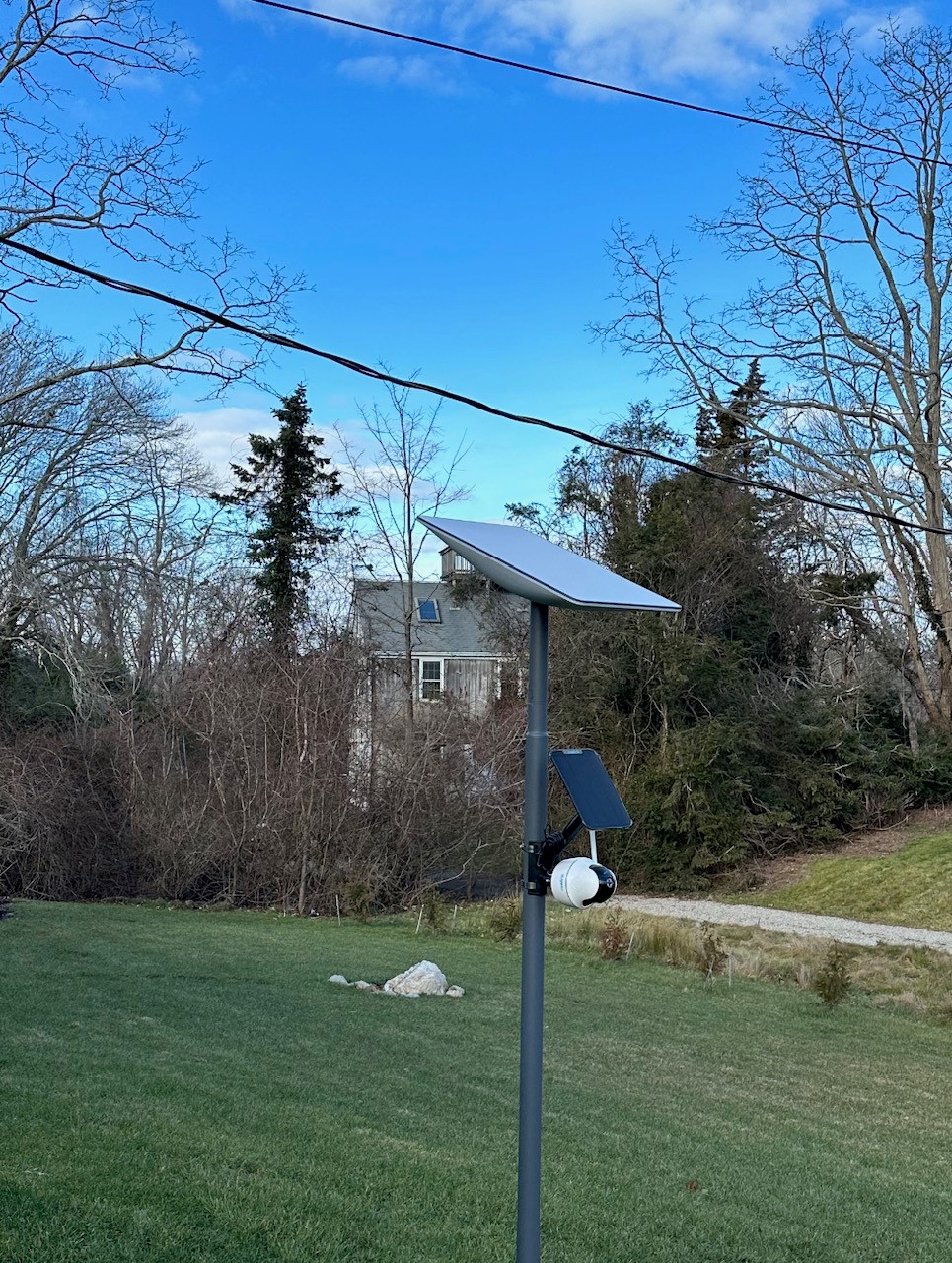Starlink provides satellite Internet access to over 40 countries. Operated by SpaceX, a constellation of 3,300 small satellites currently orbit the earth at a much lower altitude than other satellites offering Internet services. These low-orbit satellites communicate with ground stations on earth. Subscribers use a small residential receiver to communicate with satellites and establish Internet connectivity.
On their website, Starlink says customers can expect download speeds of 20-100mbps with latency around 25-50ms. Compare this with conventional satellite Internet which can be 600ms+, making high-performance computing (HPC) and other high data-rate activities that are essential for business – such as video calls – unbearable. SpaceX plans to launch up to 42,000 satellites and, as of December 2022, has reached one million subscribers worldwide.
This all sounds great, but the big question I had was “Will it work with a Cloud PC?” In this blog I’ll share my first-hand experience.
Starlink to the Rescue
For years I have used cable broadband as my primary Internet connection for both work and personal web activities. My current cable broadband subscription provides 1200MB of throughput. That is enough bandwidth for my family to use Cloud PCs, a VPN (for non-cloud PC users), music and video streaming and all of the IoT devices that are becoming more and more common. Everything works great until it doesn’t.
My neck of the woods near the ocean gets a lot of wind and it isn’t uncommon for a storm to knock out cable broadband service to my house. My spouse and I work from home exclusively, so when the Internet is down, all work stops. Our home is near the bottom of a hill and cellular service is spotty at best, rendering wireless LTE Internet useless as a backup. There have been several occasions where my family had to pack up and find a hotel with Internet service. This is expensive and disruptive. All that changed when Starlink came to our home.
My Experience with Cloud PCs on Starlink
I wasn’t sure what to expect once Starlink was online. Would I be able to access my Cloud PC? Would it be reliable or would my Cloud PC disconnect while I was working? What about Microsoft Teams? I use it all day long for collaboration and video calls; how would it perform? My concerns were unfounded. From the moment I launched my Cloud PC using Starlink I could see no difference in the experience when compared to cable broadband. I have been using Starlink exclusively for Cloud PC access for several months and I am consistently delighted with the performance. Mouse movement is smooth, watching videos is seamless, and even Teams video calls perform as well as with my cable broadband subscription. I have to admit, I was pretty surprised and really impressed.
High-Performance Cloud PCs with Starlink
As a Sales Engineer for Workspot, my personal experience led me directly to “how can our customers benefit from Starlink and our Cloud PCs?” In my world, we talk a lot about latency because poor end user experience is a primary reason why many of our customers decided to move away from traditional VDI solutions. When you have an end user computing solution that is expensive, complex to manage and troubleshoot and your end users are complaining about how slow it is, every day is not a great day for IT.
Workspot Cloud PCs change all that. Customers get simplified management and end users love the performance. We really shine in HPC use cases. The performance is outstanding because Cloud PCs and workstations are placed in the cloud region closest to the end user (low latency!), and CAD users are finally free to work wherever and whenever they want. When we add Starlink into the equation, I can see huge benefits for organizations who have employees working remotely in the field, such as construction, oil & gas, first responders to natural disasters, or even home healthcare workers in rural areas. Starlink may be a great solution to deliver high-speed Internet directly to the jobsite. Users in the field can connect to Cloud PCs to access critical AutoCAD documents and design and architecture files, survey damage and process images, and examine patient records, as well as collaborate in real time with colleagues using Teams and Zoom.
Go All-in On Starlink?
The photos below show my ‘Dishy McFlatface’ or ‘Dishy’ for short (Starlink’s name for the receiver). The first photo shows Dishy on the ground. Notice the nearby broadband cable on the ground after a particularly fierce windstorm blew the cable off a utility pole. It took a couple of days for the provider to reconnect our service and we relied on Starlink during this period. The second photo is Dishy mounted on its forever home, a steel pole.
For now we will keep cable broadband service in addition to Starlink, but I can envision a time in the future where we cut the cord and use Starlink exclusively for our Internet needs, especially since Starlink is so brilliantly performant when using a Cloud PC.


Want to learn more about why all types of end users love their Workspot Cloud PCs? Schedule a demo and we’ll show you how it works!
Cloud PCs




